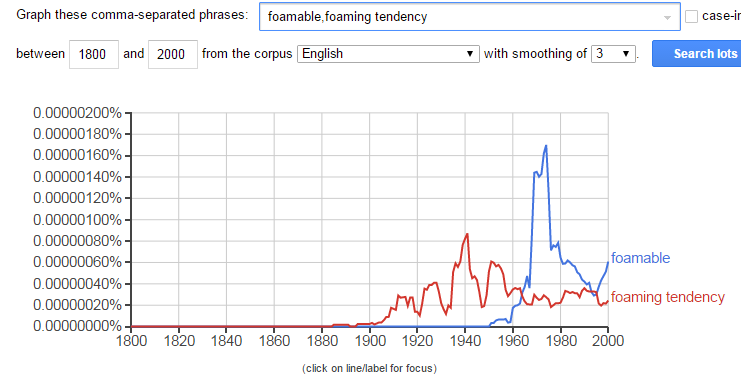Is there a word that describes the property of a liquid that causes it to tend more easily to form long-lasting bubbles?
These liquids are increasing in this property:
water < milk < bubble solution < liquid soap
Viscosity or being viscous are a noun and an adjective that describe the property of a liquid/oil's thickness. I'm looking for something similar, but for the bubbly property that I'm describing.
Example usage:
- I don't like this mouthwash. Bubbles foam out when I gargle, because it has a higher ___.
or
- I don't like this mouthwash. Bubbles foam out when I gargle, because it's more ___.

